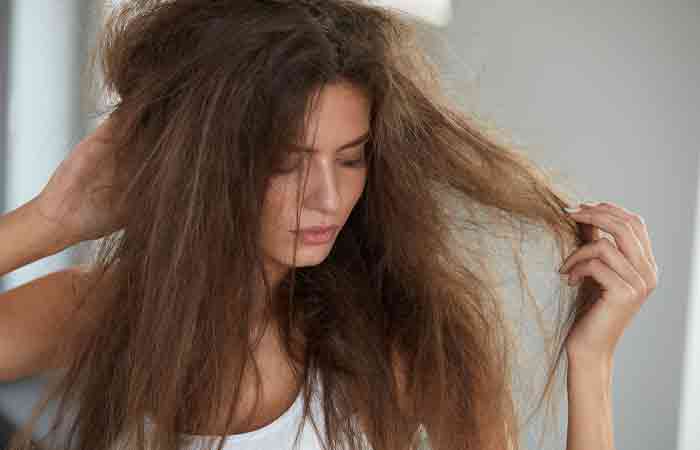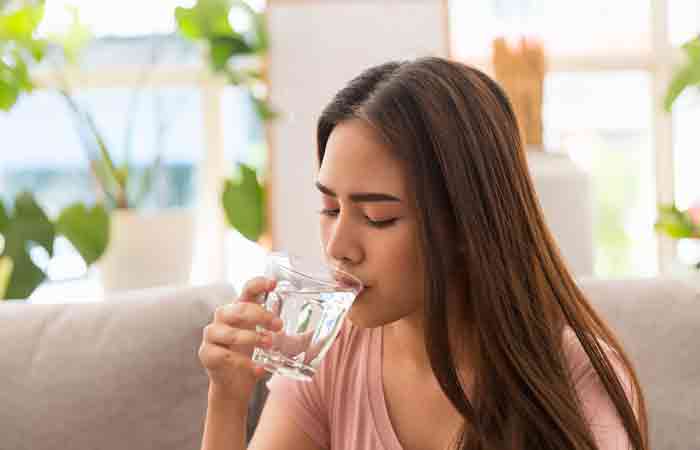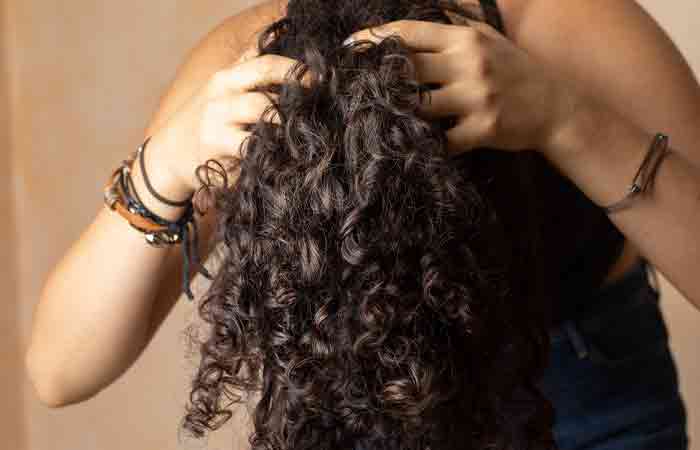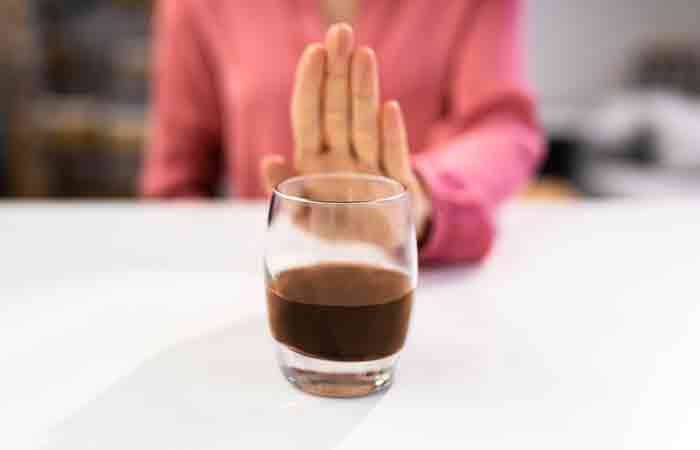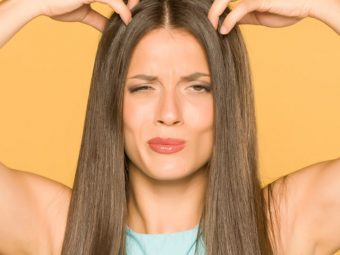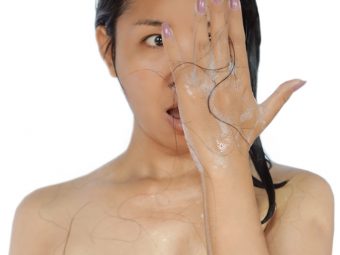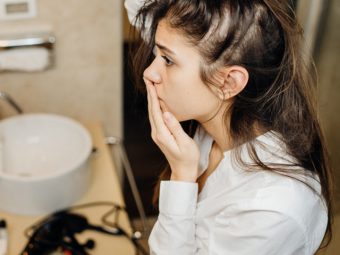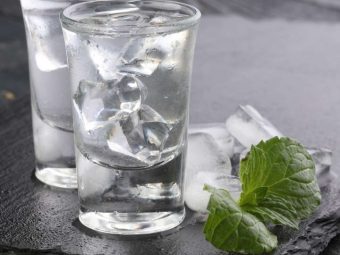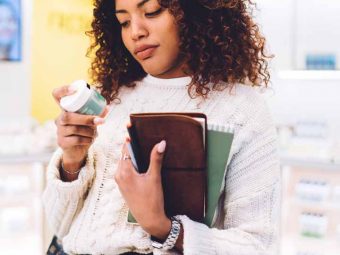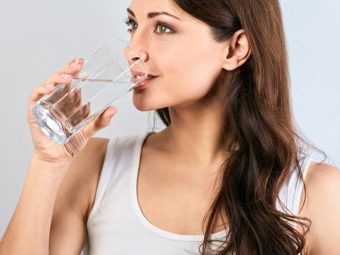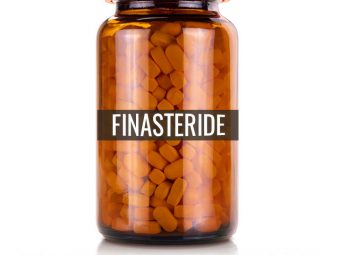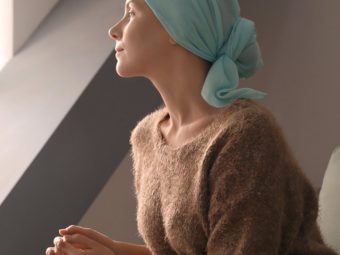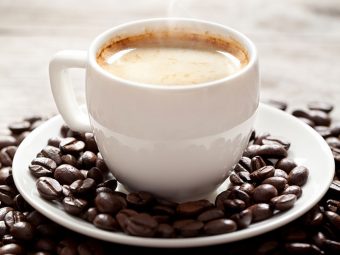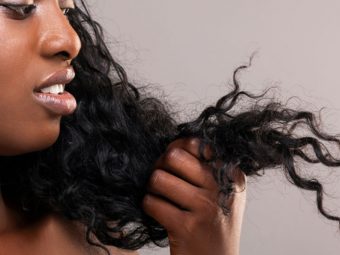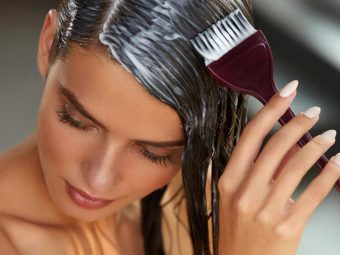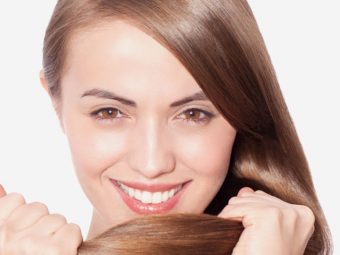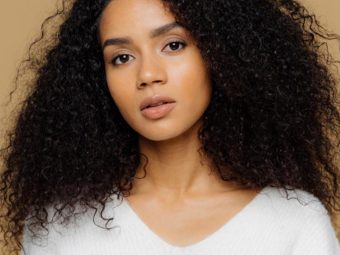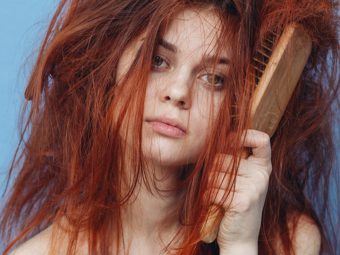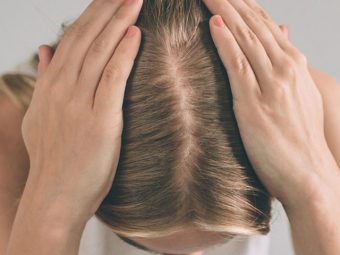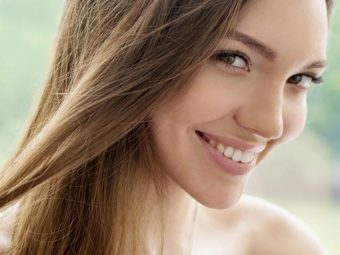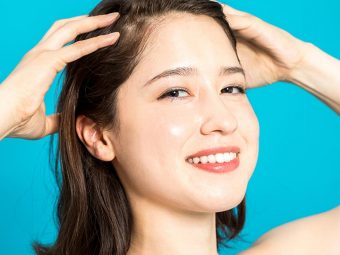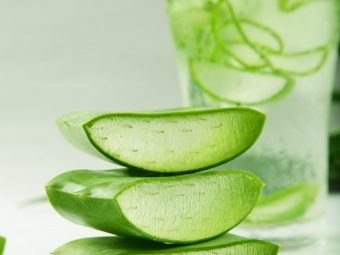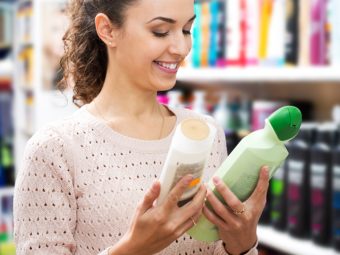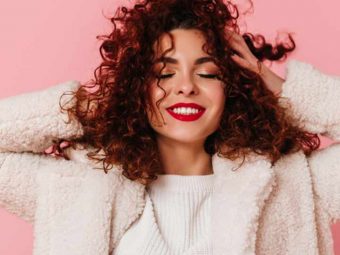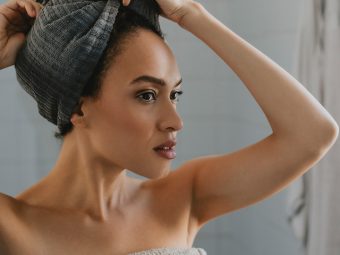Does Alcohol Cause Hair Loss? Know The Real Facts!
Alcoholic beverages can affect your hair health negatively for a variety of reasons.
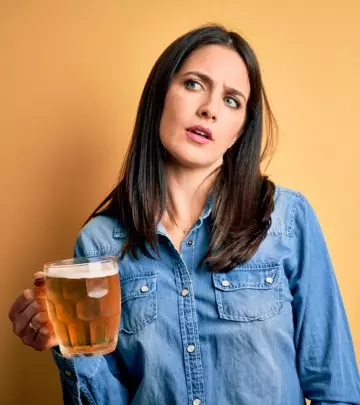
Image: Shutterstock
Alcohol impacts your body, from your liver and heart to your mental health. However, very few people know that alcohol causes hair fall too. Drinking too much of your favorite whisky, scotch, or rum may hurt your hair growth. It also can have detrimental effects on your hair health. It depletes your hair of nutrition, leaving it weak and vulnerable to damage. Before you realize it, your hair may start falling out in clumps.
Discover how excess liquor can cause hair fall and what you can do to prevent it. Scroll down and get to improving your hair health!
In This Article
How Does Alcohol Consumption Affect Hair Health?
Other than internally harming your body, alcohol also harms hair health. Generally, it is said that heavy and regular drinking can lead to your tresses falling out, breaking, and thinning.
Alcohol, as a singular ingredient, does not cause hair fall. However, the impact that heavy drinking has on the human body can lead to hair fall.
Let us see how drinking too much alcohol can damage overall hair and scalp health and lead to hair loss.
1. Alcohol Dehydrates Your Hair
Alcohol is a diuretic, which causes loss of water and salts from the body. Excessive drinking may lead to dehydration (1). This can make your skin and scalp dry. The dry surface of the scalp makes the hair brittle and prone to falling.
The ends can start splitting due to your hair drying out, stopping your locks from growing any further. A dry scalp also leads to itching and dandruff, thus causing your hair to break more easily.
2. Malnutrition Due To Alcohol Can Lead To Hair Loss
Not only does excessive alcohol consumption lead to dehydration, but it can result in the loss of nutrition from the body. Alcohol contains empty calories – it makes it seem like your stomach is full. But, in reality, you have not consumed anything nutritious. Rather, alcohol robs your hair and body of the nutrients essential for their health (2).
All normal bodily functions, including hair growth, depending on the health of an individual. Hair grows with the help of proteins, vitamins, fat, carbohydrates, and fiber – all micro and macronutrients.
The most important nutrients for healthy hair are zinc and biotini XAlso known as vitamin B7, a nutrient that helps accelerate follicle growth by stimulating keratin production in the hair. (3). Heavy drinking can trigger a deficiency of these nutrients, causing your hair to become brittle, lose luster, and fall out (4).
According to a study, among heavy drinkers, about 35% are likely to develop advanced liver diseases. About 90% of patients diagnosed with Alcoholic Liver Diseases have poor-quality diets that do not meet the recommended protein and zinc doses. Further, patients with liver Cirrhosis face loss of zinc through urination or face difficulty in zinc absorption. Lack of essential protein and zinc is often linked to hair loss and is a common issue amongst heavy drinkers.
With no new nutrients introduced into the body and existing nutrients getting flushed out, your body suffers from malnutrition, and your hair becomes weaker.
3. Alcohol Can Upset Your Estrogen Levels
Excessive alcohol consumption is known to raise estrogen levels in the body (5). The fluctuations in estrogen can cause hair loss. Estrogen exists in both men and women and is responsible for maintaining reproductive health in both genders.
In men, an imbalance in estrogen levels has a two-fold effect. It may cause either excessive hair growth or hair fall, ultimately leading to baldness. In women, hair follicles lose their grip on the scalp because of irregular estrogen production, thus causing hair fall (6).
The question of whether alcohol causes hair loss has been answered. Now the next question is, can you take any measures to prevent hair loss from heavy drinking? Let us find out.
How To Avoid Hair Loss Caused By Alcohol
You can offset your chances of hair loss caused by alcohol with the following healthy habits:
1. Eat Well
Drinking alcohol affects how the nutrients from the food you eat are absorbed by your body (2). Excessive drinking reduces the production of enzymes that aid digestion. For the same reason, eating a healthy meal can offset the nutrient loss caused by alcohol.
Consume a balanced meal of fruits, vegetables, whole grains like rice and oats, and proteins such as lentils and meats.
 Quick Tip
Quick Tip2. Rehydrate Yourself
Nothing can heal as well as water. The nutrients from the food need to be circulated to the various organs in your body to keep them functioning properly. Water is the vessel that carries the nutrients to their destinations. Moreover, studies show that water itself contains some vital minerals that can combat hair loss caused by alcohol consumption (7).
 Quick Tip
Quick Tip3. Consider Multivitamins
Heavy drinking results in the depletion of vitamins and minerals required for healthy, shiny hair. Although better eating choices can repair a nutrient deficiency, in some cases, you may need to rely on nutritional supplements (3).
Consult a doctor to understand the right dose of vitamins and minerals to take until your hair is healthy enough to grow on its own.
Time To Stop Drinking?
There is scientific evidence that drinking alcohol can cause hair loss, and we can all agree that it is generally an unhealthy habit. But, do you need to stop boozing altogether to maintain healthy, thick hair?
On the whole, limited alcohol consumption has little effect on the health of your hair. So, an occasional glass of wine or a pint of beer will not do much damage.
But to achieve the healthy, shiny hair results you are after, you need to go beyond limiting your alcohol intake. Besides eating well and drinking adequate water, maintaining a healthy lifestyle can reduce the damage that booze does to your hair.
Pay some more attention to your hair care routine and find healthier ways to cope with stress. Implementing these vital lifestyle changes can keep your hair at its healthiest.
When To Quit Alcohol
Drinking in moderation is reasonable only in the absence of substance abuse. Since alcohol abuse can cause hair loss, quitting the bottle is the best way to reduce its harmful effects on your locks (and overall health).
You may not have a full head of hair immediately after stopping, but dealing with the root cause is the first step to nursing your mane back to health.
Since alcohol impacts the drinker physically as well as psychologically, it might be useful to ask for professional help to stop drinking for good.
Clearly, it is vital to reduce alcohol use and adopt healthy habits for shiny, happy, and thriving hair. But, anecdotal evidence suggests that topically applying beer can lead to a shinier and smoother mane. Let us see if there is any truth to this claim.
Should You Try A Beer Rinse To Increase Hair Growth?
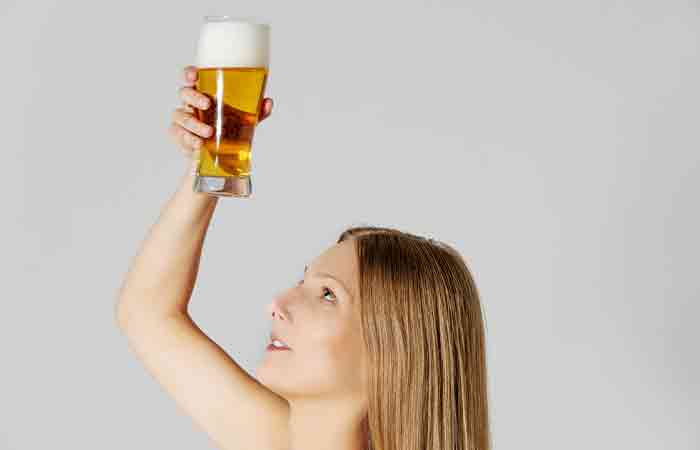
Shampoos containing beer have become popular recently for their effectiveness in giving you strong, soft, and lustrous hair. The use of beer in shampoos has become popular due to the composition of the beverage.
Beer contains minerals like selenium, silicon, and zinc. It is important to note that only intake of these nutrients may promote hair health (3). Topical application (as is the case with beer) may not promote hair health. It is also believed that trace elements of beer can get absorbed into the scalp through topical application, though this seems highly unlikely. Anecdotal evidence also suggests that applying beer to your hair can enhance its shine.
Nina, a blogger, shared her experience of using a beer rinse on her hair in her blog and was amazed with the results. She said, “My hair was so soft and shiny and I was surprised that it brightened my gray natural hair, even better than apple cider vinegar rinse (i).”
Beer can be good for hair health. But if you are recovering from heavy alcohol use and addiction, then using beer-infused shampoo and hair care products can be detrimental for your recovery.
Moreover, the results vary across different hair types, and adding alcohol to your locks may make them duller and drier. The benefits of a beer rinse are not proven scientifically yet, so consult a doctor before using it on your hair.
You can try a beer rinse to reduce hair fall. But, it can be challenging to grow your hair out in the first place if the roots are damaged. Here are some ways to heal your hair from the roots.
How To Revive The Roots Of Your Hair
Keratin is a protein found in your hair, skin, and nails. Heavy alcohol use is said to affect the production of keratin and, in turn, damage hair follicles and hair roots. However, there is no scientific evidence to prove the same.
Usually, if the hair roots are dead, it is difficult to regrow hair, and you may need to get a hair transplant. However, before taking any drastic measures, try to heal the affected hair roots at home.
Hair massage is one of the best ways to help your scalp regrow hair (8). You can use various ingredients available at home to serve as DIY supplements for massaging the scalp. Here are a few ingredients to help stimulate follicles:
1. Coconut Oil
Nothing beats coconut oil. It is one of the best natural oils that can condition your hair and make it thick and lush. It helps lubricate the dead hair follicles in the scalp and encourage new growth. Regular use of coconut oil shows a visible difference in hair health (9).
2. Aloe Vera
Aloe vera is a medicinal plant used to treat burns, scrapes, and even small cuts and wounds. Its moisturizing properties can combat dehydration and irritation on the scalp (10). You can apply aloe vera gel to the scalp and massage it with your fingertips. However, make sure you are not allergic to it by conducting a patch test first.
3. Onion Juice
Yes, onion. This pungent, smelly vegetable is actually useful in maintaining hair health and can even regrow your tresses (11).
To deal with the existing damage of alcohol on your roots, try this DIY oil:
- Heat up a cup of coconut oil.
- Add half an onion, a spoonful of fenugreek seeds, curry leaves from 2 sprigs, and a handful of henna leaves.
- Allow all the ingredients to infuse in the hot oil thoroughly.
- Once cool, strain the oil into a bottle and apply a small palmful daily.
- Use the oil regularly, and you will see a visible difference in hair in just a week.
If the dryness in your hair persists, it can cause your tresses to fall out, ultimately leading to a bald patch. Learn how you can deal with baldness related to alcohol consumption in the next section.
How To Tackle Baldness Caused By Alcohol
Drinking alcohol may cause hair loss to the point of baldness. If the roots remain dead, the affected areas on the scalp remain without hair and cause small bald patches. Unfortunately, the chances of natural hair regrowth are very slim once you reach this stage.
In such cases, the best solution is to go for a hair transplant. Hair transplant treatment, when successful, can show visible hair growth within a year of the surgery. However, be warned that it is an expensive procedure that may initially cause pain and discomfort.
Infographic: Prevent Hair Loss And Revive Your Hair After Drinking Alcohol
Let’s refresh our memories! Consuming a limited amount of alcohol does no harm, but you might feel its effects after a night of binge-drinking. Apart from that painful hangover, you will also notice the depreciating state of your hair. When consumed in excess, this drink can cause hair fall. Check out the infographic below on the best ways to avoid hair loss and revive your hair after drinking alcohol.

Illustration: StyleCraze Design Team
Drinking too much alcohol regularly can severely affect your hair health, leading to hair thinning, breakage, and hair loss. This is because alcohol can dehydrate your hair and scalp and even cause nutrient deficiencies, which are known to be a cause of hair loss. As mentioned above, it also impacts estrogen levels, which may cause baldness.
To manage or reduce alcohol-caused hair loss, you will need to make lifestyle changes such as eating healthier, keeping your body hydrated, taking vitamin supplements, and reducing your daily intake of alcohol. As you stick to these healthy changes, you will notice a great improvement in your hair health!
Frequently Asked Questions
Will hair grow back after quitting alcohol?
In general, it takes about six to nine months for the hair to grow from root to tip (12). However, with excessive alcohol consumption, the affected scalp and hair need time to heal from the damage. Only once healing begins internally will you be able to see the effect externally.
Is hair loss from alcohol reversible?
Usually, if the hair roots are damaged, it is not easy to regrow hair. Using DIY solutions to stimulate hair growth might work in some cases. Consult a dermatologist and decide the right course of treatment. Certain treatments like PRP, meso injections, rollers, and certain oral and topical medications may help. If nothing works, hair transplant could be considered.
Does alcohol increase DHT?
If your hair is sensitive to dihydrotestosteronei XA more potent hormone than testosterone that is necessary for hair growth and to regulate its cycle. (DHT), you are likely to experience breakage, thinning, and hair fall. However, DHT-sensitive hair follicles are primarily genetic, and there is little research to show a strong link between alcohol and DHT.
Is alcohol bad in hair conditioners?
No, not all alcohols cause hair damage. In fact, some of them are beneficial. You should avoid short-chain alcohols (like ethanol, alcohol denat, etc.) as they can dry out your hair. Fatty alcohols (like cetearyl alcohol, lauryl alcohol, etc.) from natural sources, like coconuts, are preferable because they keep your hair moisturized.
Key Takeaways
- Heavy and regular alcohol consumption can cause your hair to break, thin, and fall out.
- It dehydrates the hair, leads to malnutrition, and raises estrogen levels in the body.
- Eat healthy, drink plenty of water, and take multivitamins to prevent the effect of alcohol on hair loss.
- You can massage the scalp with ingredients like coconut oil, onion juice, or aloe vera to revive the hair roots.
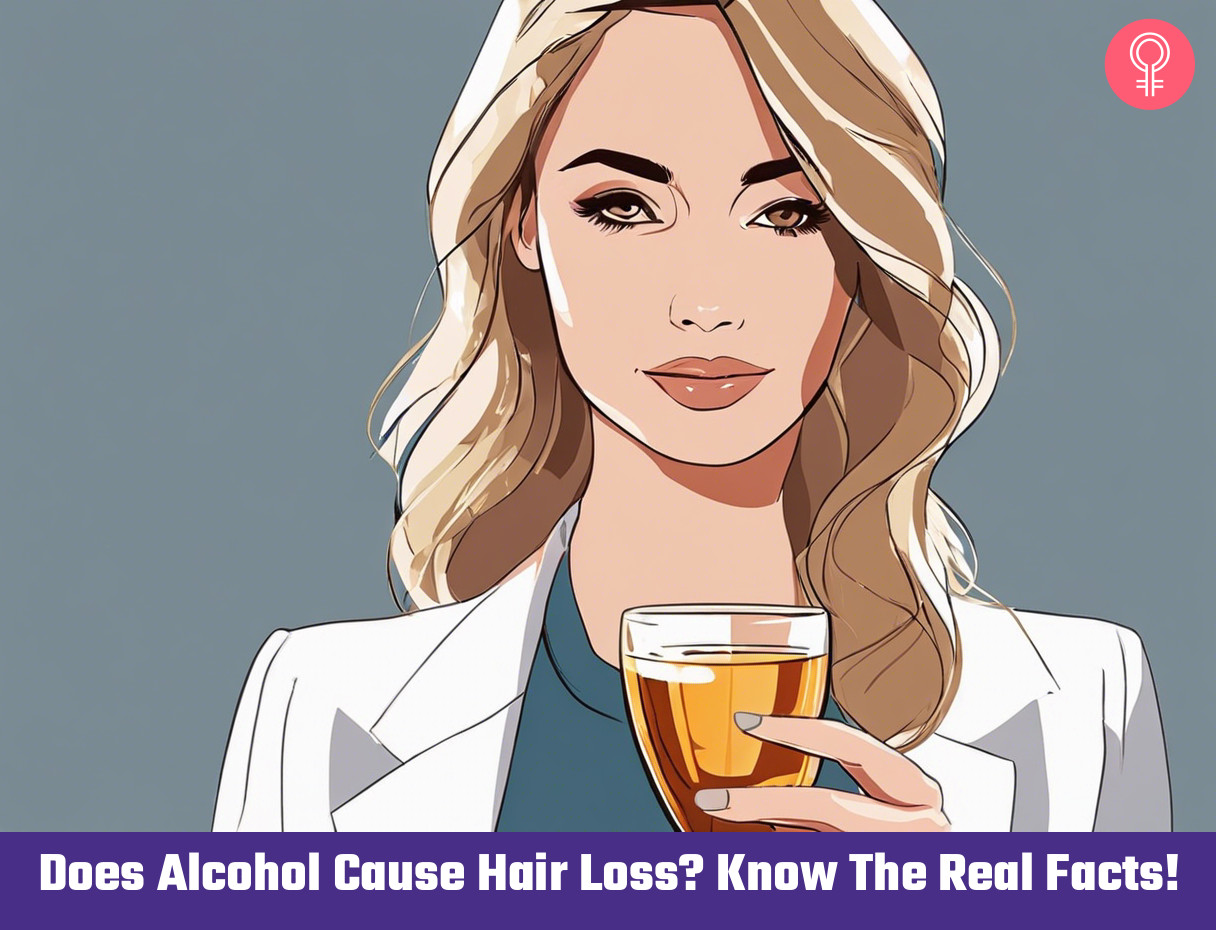
Image: Stable Diffusion/StyleCraze Design Team
References
Articles on StyleCraze are backed by verified information from peer-reviewed and academic research papers, reputed organizations, research institutions, and medical associations to ensure accuracy and relevance. Read our editorial policy to learn more.
- Alcohol’s Impact on Kidney Function
https://pubs.niaaa.nih.gov/publications/arh21-1/84.pdf - Alcohol and Nutrition
pubs.niaaa.nih.gov/publications/aa22.htm - Diet and hair loss: effects of nutrient deficiency and supplement use
www.ncbi.nlm.nih.gov/pmc/articles/PMC5315033/ - Mechanisms of vitamin deficiencies in alcoholism
pubmed.ncbi.nlm.nih.gov/3544907/ - Sex hormones in alcohol consumption: a systematic review of evidence
onlinelibrary.wiley.com/doi/10.1111/adb.12589 - Effects of Alcohol On Menopausal Women
pubmed.ncbi.nlm.nih.gov/9726268/ - The Contribution of Drinking Water to Mineral Nutrition in Humans
www.ncbi.nlm.nih.gov/books/NBK216589/ - Self-Assessments of Standardized Scalp Massages for Androgenic Alopecia: Survey Results
link.springer.com/article/10.1007/s13555-019-0281-6 - A Study on Scalp Hair Health and Hair Care Practices among Malaysian Medical Students
www.ncbi.nlm.nih.gov/pmc/articles/PMC5551307/ - Aloe vera: A Potential Herb and its Medicinal Importance
www.jocpr.com/articles/aloe-vera–a-potential-herb-and-its-medicinal-importance.pdf - Onion juice (Allium cepa L.) a new topical treatment for alopecia areata
pubmed.ncbi.nlm.nih.gov/12126069/ - How Long Does It Take Hair To Grow
www.aad.org/public/diseases/hair-loss/insider/shedding





